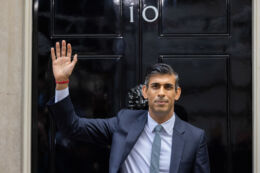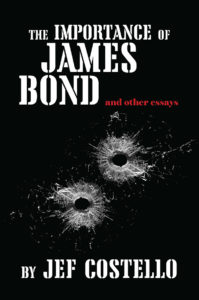The Union Jackal, May 2024

Photo courtesy of Number 10 on Flickr.
2,659 words
Dependence Day
Rishi Sunak, Britain’s diminutive Hindu Prime Minister, has named the date of the British General Election, and it will fall on American Independence Day. In Britain, of course, this would have to be re-christened Dependence Day as, in line with all European states and globalist requirements, dependence is what the state wishes to see in its citizenry. Le roi, c’est moi, says the British deep state.
As the United Kingdom creeps glacially from being a country in which everything is legal unless there is a law saying it’s illegal to one in which everything is illegal unless there is a law saying it’s legal, the British state wishes its people to require nothing it cannot provide, by force if necessary. The phrase “nanny state” is often used by Brits to describe this coddling interference by government and the public sector, but if the modern version of the state is a nanny, then her name is Scary Poppins.
Sunak made the announcement that the government would “go to the country” (the old posh name for calling a General Election) outside Number 10 Downing Street, and it was a tragicomedy of dysfunctional optics. Sunak spoke in the pouring rain but, despite politicians usually having an intern with a brolly keeping them dry, perhaps Sunak thought making his speech while getting drenched would make it all a bit more like the end of Blade Runner; it’s hard to say. For Sunak and his Tory Party, it’s certainly time to die. But, just as we were dealing with Ruskin’s pathetic fallacy, whereby nature is allocated a human emotional response, from Whitehall suddenly came the pumping strains of the Labour Party’s Blair-era campaign theme, “Things Can Only Get Better.” This was genuine Whitehall farce. Then, the announcement made, a soggy Sunak was whisked off to his next Prime Ministerial appointment in Belfast, Northern Ireland, where he really was photographed visiting the shipyard where the Titanic was built. If there are globalist rulers, moving world leaders around like chess pieces, no one can accuse them of lacking humor.
So, the runners and riders are in the stalls, and the 2024 British Governmental Handicap Stakes is underway, the stakes being unusually high for a British people still bemused at the position they find themselves in. Or, rather, the position successive “Tory” prime ministers and their respective confederacies of dunces have put them in. The very old must be baffled by what has happened to a nation which defied the odds in the Second World War. Hitler couldn’t put the hostile feet of an invading army on the beaches of Kent, but the European Convention on Human Rights can.
While the two main parties are — and don’t say this in polite society — two cheeks of the same arse, the only vaguely Right-wing alternative is the Reform Party. Led by Richard Tice, a man who still comes across as a chancer, they are marketing themselves as a Conservative revivalist party, like a cross between old-time religionists and a Pink Floyd tribute band. They still look as though they are malleable, though, and that they will go where the political wind blows them, weathercock politics rather than conviction politics. Tice’s grinning thumbs-up at the Ukrainian border shows he is tone-deaf, and he would have garnered more disaffected Tory voters if he had questioned the continuing pouring of tax money down a Ukrainian drain.
Tice’s problem is that he believes that a constant display of righteous anger somehow captures the mood of a nation going to the ballot box in six weeks, at the time of writing. Things are always making him furious or making his blood boil, as though he were a blousy and menopausal radio phone-in hostess. Anyone who saw the amusing 1999 movie Mystery Men, whose plot revolved around a group of superheroes with crap powers, will remember Ben Stiller as Mr. Furious, whose superpower was getting furious. Tice apparently understudied him. But then again he may have chosen right with the angry neighbor act. He may know something all the British political class know: namely, that the British public know almost nothing about politics. They are like those player pianos, made to produce music in response to a braille-like tickertape fed through the music box, except their chord sequences are lifted straight from the provisional wing of government: the mainstream media. This General Election, as I previously dealt with in more depth at Counter-Currents recently, seems a foregone conclusion. A more pressing question is what will happen to one of the world’s oldest brands: British conservatism.
A bloody mess
While it is possible to whistle past the graveyard and laugh in the dark at the British predicament, some stories are just not funny. The human cost is too much to poke fun. Britain’s National Health Service, the fabled NHS, is still touted as the best in the world, but which world is never specified. The latest example of its ongoing malfeasance involves infected blood, and it is a desperate tale which typifies the malaise falling across the country like feathers from a wounded grouse.
In the 1970s and ‘80s, around 30,000 people in the UK were infected with HIV and/or Hepatitis C from infected blood stock imported from the United States. Now, the giving of blood is a strong sign of communitarianism, which is why American blacks donate at 25-50% of the rate whites do, and it is hard to think of many more altruistic gestures than giving your most vital bodily fluid to help others. Unfortunately, this human kindness stops once the blood is in the bottle.
Now, in a 2,527-page report (a breakdown of which has been provided by News18) on what is being called the NHS’ worst-ever scandal, the most chilling line therein is the statement that “the disaster was not an accident.” In fact, let’s employ that popular modern accomplice, context, and listen to what the report’s author, Sir Brian Langstaff, had to say in an overview to this bureaucratic pogrom:
What I have found is that this disaster was no accident. People put their trust in doctors and the government to keep them safe and that trust was betrayed. Then the government compounded that agony by telling them that nothing wrong had been done, that they’d had the best available treatment and that as soon as tests were available they were introduced and both of those statements were untrue.
Now, after years of campaigning, years during which around 10% of those infected have died, the remainder suffering the chronic ill health associated with HIV and, to a lesser extent, Hepatitis C, there is to be a program of compensation for an inventory of errors that destroyed lives. But this was no simple slip of the bureaucratic pen, it was a systematic dereliction of duty at every stage of a process which, in this case, treated medical ethics as though they were a rough rule of thumb a gardener might use, and could be disregarded if too onerous. The list of preventable evils is a long one.

You can buy Jef Costello’s The Importance of James Bond here
Blood donors in the US were insufficiently screened, and included prisoners and drug addicts. (The US continued to accept blood donations from convicts until 1984.) Research was carried out on hemophiliacs without their knowledge and therefore without their consent, a central supporting wall of medical ethics. Some were given riskier treatments, such as the pupils at Treloar College in Hampshire, whose hemophiliac boys were treated or, as the report says, “treated as objects of research” in the 1970s and ‘80s. Of the 122 pupils treated, 30 are still alive. A delay in available testing, a delay in acting on the knowledge of infected products, and a delay in informing patients, who were often told of their plight bureaucratically and unsympathetically, all contributed to this technocratic horror show. The list of avoidable errors goes on, but I can’t. As Don McLean once almost sang, my hands are clenched in fists of rage.
Rishi Sunak is to apologize officially to those affected and their families. That is, an outgoing PM who never much cared for the job is going to say sorry for something that happened decades ago and over which he had no control. This is like those synthesized, voice-chip apologies for a late train. It says sorry, but isn’t really human enough for that to have any integrity of meaning. The compensation for this appalling state-endorsed compound of errors is derisory when set against, say, the money spent on immigrant healthcare. Those responsible on the clinical and governmental side of the affair should hang their heads in shame, but they are programmed for neither.
Black Mischief
It would be a strange month in the UK in which its black caucus didn’t chip away at what it sees as the vast monolith of white oppression, and in the merry month of May it was the turn of the legal profession to discover just how irritating black people can be when they try. In contrast, I believe, to the US legal profession, Britain’s lawyers are divided into dual roles: solicitors and barristers. Should you find yourself in a spot of bother requiring legal redress, a solicitor is your first port of call for legal advice and the preparation of a case. Should the case then come to trial and courtroom advocacy be required, the solicitor hires a barrister, who is the one who does the pacing around the courtroom cross-examining people and saying “I put it to you . . .” and what have you. As with so many waning British institutions, there is an element of ceremonial in the courtroom, and one such feature is the barrister’s wig.
If you follow the link above, you will note that three of the eight barristers pictured (or the models playing them) are black. The actual figure for black British barristers was 3.6% in 2020, approximately consummate with the black British population, not the 37.5% the gallery pictures suggest. We will charitably assume, given that the law is a venerable and august institution, that positive affirmation was not applied. But the latest example of institutional racism, that cornerstone of the race-grifting industry, is not concerned with ethnic representation, but with hair. Certainly, if it is the latest in black hairstyling you wish to see, then the British courtroom is the place to go, many of the defendants having a melanin count sufficient to alert anyone either to the systemic racism in the judicial system, or the propensity of young black men to commit crime, dependent entirely on how tethered you are to reality.
The Daily Telegraph informs us that:
[T]he judiciary is poised to update its court dress code following complaints from some barristers that the traditional headpieces discriminate against those with Afro-Caribbean hair.
So that’s why The Jackson Five stayed out of the legal profession in the UK. Discrimination is always an ugly affair when it affects black people, which it does at all times whites are within a ten-mile radius of them, and “mixed-race” barrister Rachel Bale points out a detail of her brief:
Something overlooked often [sic] in black culture is that your hair is so inexplicably important and it is completely interwoven with your identity.
No, it isn’t. It’s completely interwoven with your head, late in the day in the case of Sir Elton John. What’s woven into your identity, Miss black advocate lady, is racial grievance, narcissism, and a dislike of white traditions. Unfortunately, because you are black, your word is law.
From the theatricality of the British courtroom to the theater itself, and the latest famous play to be a victim of CBC (compulsory black casting): Shakespeare’s Romeo and Juliet. This cultural miscasting, which is intended purely pour épater les blancs, is more or less a weekly event now, and British television watchers are used to the new depiction of history as looking like an average London high street. But a jungle-bunny Juliet is pushing it a bit.
Now, it is only just to give the Swan of Avon himself a say in all of this. In Act I, Scene V of the play, Romeo takes time off from taking cold showers to give us a good idea of Juliet’s appeal:
It seems she hangs upon the cheeks of night
Like a rich jewel in an Ethiope’s ear;
Beauty too rich for use, for earth too dear!
So shows a snowy dove trooping with crows.
With a schwarze Capulet, those lines are going to seem a little out of place, no? Two explicit images of blackness with a bright, white object all the more accentuated by it doesn’t leave much interpretative room for blackface. Also, Romeo won’t stop banging on about Juliet’s beauty, and she was clearly an Italian cracker, molto bello. Now, in terms of our faces we just have to make do with the cards we are dealt, and it is unkind to comment on matters of beauty to the detriment of one particular person, but in the case of Ms. Francesca Amewudah-Rivers, Juliet she ain’t.
Although this is Ms. Amewudah-Rivers’ West End debut, she is not new to the Bard, having previously appeared in Macbeth and Othello. We must presume that she didn’t play Desdemona in the latter play, which would really have messed with the dynamic.
Prep talk

You can buy Mark Gullick’s novel Cherub Valley here.
American preppers are generally seen by the British as a cranky but equally harmless version of the Mormons, gathering on a hillside somewhere to await Judgment Day. The British may, then, be a little surprised that their own government, now in its Berlin bunker days (see above), is asking them to join the throng of people checking they have a tin opener and lots of flashlights. And batteries.
The government has added a page called “Prepare” to its official website, short for “How would you prepare for an emergency?”, and an experienced American prepper would cast an eye over it and pronounce it fit for purpose. It is comprehensive, and one is left wondering concerning its release: Why now? Surely the government doesn’t know something the people don’t. A jogged British memory will recall the “public emergency alert” road-tested on smartphones on St. George’s Day last year. Or perhaps it is all an ongoing part of so-called “Project Fear,” whose mission statement is a message to the public: Don’t be too afraid, but be afraid. In this case, the government doesn’t want to alarm you, but would you mind making sure you have a wind-up radio, lots of your medication, and plenty of non-perishable food in the house? Thanks ever so much.
Thinking of everything to protect the vulnerable citizen, the government has included a downloadable and printable emergency guide for your home and, as we know, an Englishman’s home is his castle. First, pull up the drawbridge. Just kidding. There are one or two points worth reading and inwardly absorbing, however, such as the following useful brace of stratagems once you have identified the source of the emergency. I quote from the document:
If the emergency is outside the home, go in.
If the emergency is inside the home, get out.
This reminded me irresistibly of the tsunami warning sign at the end of a street on which I lived here in Costa Rica, a stone’s throw (well, catapult) from the Pacific:
What this adorably Costa Rican sign is saying is, in the event of a tsunami, if you get to the end of the street and look both ways, don’t run towards the 40-foot wall of water. But it is reassuring that the British government is helping you hope for the best and prepare for the worst. Any Brits reading this should download and print the emergency list, and perhaps laminate it and attach it to the fridge with amusing magnets. Unless your kitchen is soon to become an irradiated pile of ash along with your family, this will help you wipe it clean should an emergency occur.
Batten down the hatches!
The Union Jackal.


